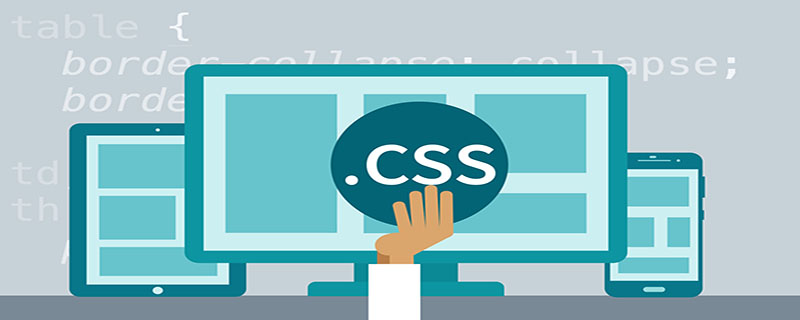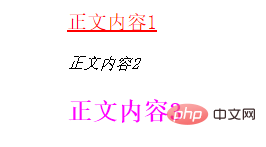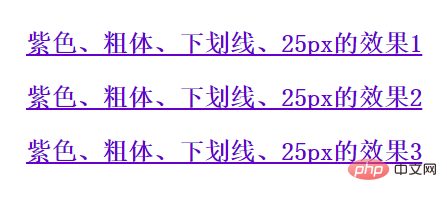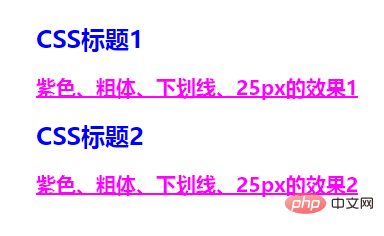

Use CSS to fully control the page. There are four main methods: inline style, inline style, link style and import style. Let’s take a look at these four methods respectively. Methods:
1. Inline style
1. Features: The most direct one.
2. How to use
Directly use the style attribute in the HTML tag and write the CSS code in it.
3. Example
<html> <head> <title>页面标题</title> </head> <body> <p style="color:#FF0000; font-size:20px; text-decoration:underline;">正文内容1</p> <p style="color:#000000; font-style:italic;">正文内容2</p> <p style="color:#FF00FF; font-size:25px; font-weight:bold;">正文内容3</p> </body> </html>

4. Evaluation
Inline style is the simplest way to use CSS, but due to the need for each If a tag sets the style attribute, the later maintenance cost is still very high, and the web page is easy to be overweight, so it is not recommended.
2. Embedded style
1. Introduction
The embedded style sheet is to write CSS in
and and tags.2. Example description
<html>
<head>
<title>页面标题</title>
<style type="text/css">
<!--
p{
color:#6600CC;
text-decoration:underline;
font-weight:bold;
font-size:25px;
}
-->
</style>
</head>
<body>
<p>紫色、粗体、下划线、25px的效果1</p>
<p>紫色、粗体、下划线、25px的效果2</p>
<p>紫色、粗体、下划线、25px的效果3</p>
</body>
</html>
3. Analysis
(1) As can be seen from the example, all CSS code parts They are concentrated in the same area, which facilitates later maintenance and the page is greatly slimmed down.
(2) However, if there are multiple pages and you want to use the same style for the
tags on different pages, the inline style is a little troublesome and the maintenance cost is not low.
(3) Therefore, inline style is only suitable for setting separate styles for special pages.
3. Link style
1. Position
The link CSS style is the most frequently used and the most practical method.
2. Method
Add the statement between the
and tags in HTML: .3. Example
(1) CSS file: 1.css
h2{
color:#0000FF;
}
p{
color:#FF00FF;
text-decoration:underline;
font-weight:bold;
font-size:20px;
}(2) HTML framework
<html> <head> <title>页面标题</title> <link href="1.css" type="text/css" rel="stylesheet"> </head> <body> <h2>CSS标题1</h2> <p>紫色、粗体、下划线、25px的效果1</p> <h2>CSS标题2</h2> <p>紫色、粗体、下划线、25px的效果2</p> </body> </html>

4. Advantages
Completely separates the page frame HTML code and the art CSS code, making pre-production and post-maintenance very convenient. One CSS file can be linked to multiple HTML files.
4. Import type
1. The function is similar to the link type, but there are slight differences in syntax and operation methods.
2. Comparison with link type
(1) The style sheet imported using the import method will be imported into the HTML file when the HTML file is initialized, as part of the file, similar to the content of the HTML file. Embedded effect;
(2) Linked CSS files are introduced as links when HTML tags require formatting.
3. Several commonly used @import statements
You can choose any one and place it between the tags.
@import url(1.css);
@import url('1.css');
@import url("1.css");
@import 1.css;
@import '1.css';
@import "1.css";
4. Advantages
(1) The biggest use of importing style sheets is that one HTML file can import many style sheets;
(2) Not only in the of the HTML file Multiple style sheets can be imported into the markup, and other style sheets can also be imported into the CSS file.
Recommended tutorial: css quick start
The above is the detailed content of How to use css to control pages. For more information, please follow other related articles on the PHP Chinese website!